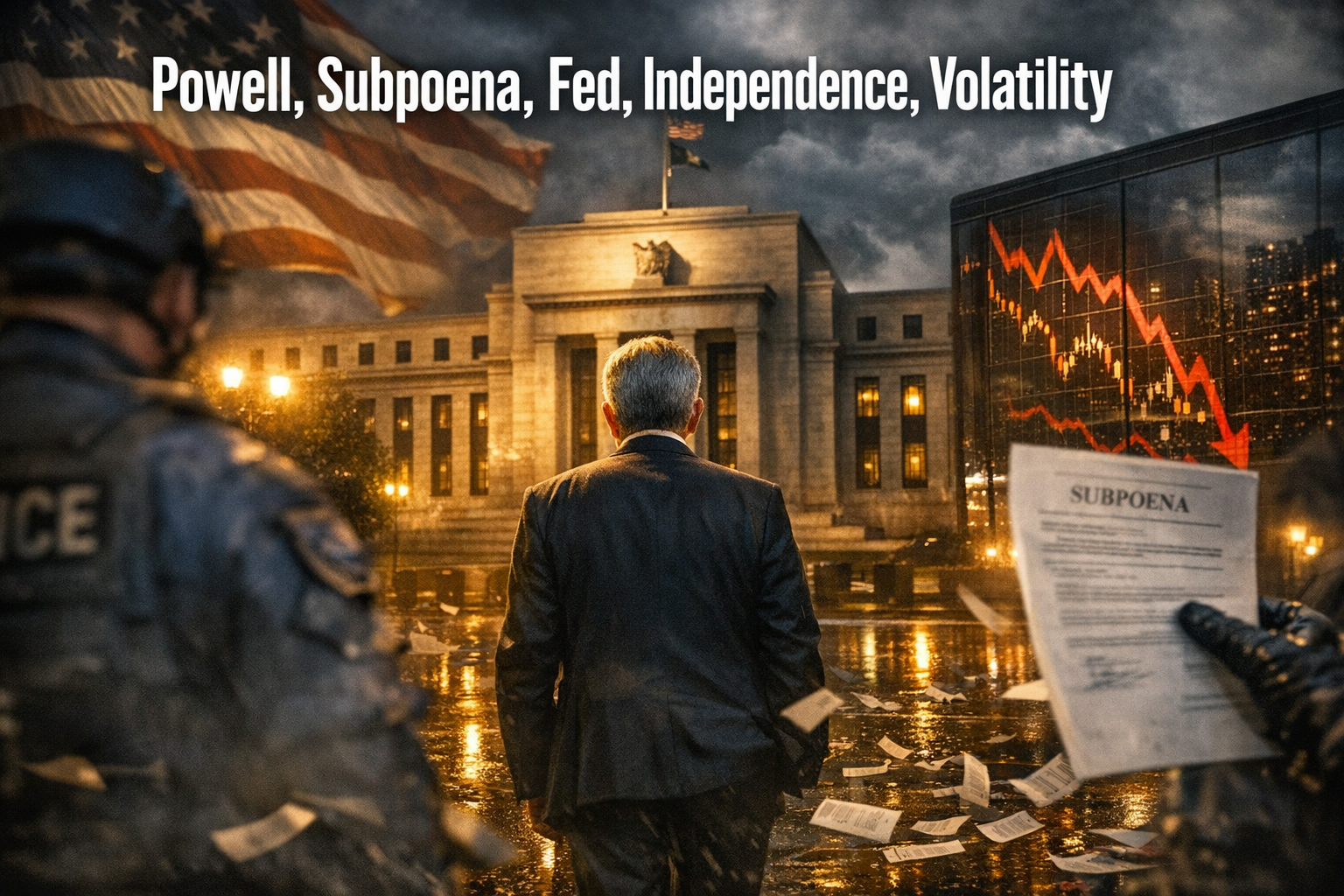● Microsoft Exits Pakistan Instability’s Digital Blow
Microsoft’s Withdrawal from Pakistan: A Critical Shift in Global Reshaping and Digital Transformation
1. Background to the Decision and Global Restructuring
Microsoft’s closure of its Pakistan office after 25 years of operation marks a significant turning point for the global economy and technology industry. The company cites global restructuring and a shift towards a cloud-based, partner-led model as primary reasons. This global restructuring strategy aims to provide more efficient digital services than direct operations in various countries. Amid rapidly changing global economic conditions and economic uncertainty, this decision is expected to significantly influence investment directions.(Global, economy, restructuring, technology, investment)
2. Reasons for Pakistan Withdrawal: Economic and Political Instability
Without an official announcement, Microsoft internally identifies economic turmoil and political instability in Pakistan as key reasons for its withdrawal. This process involved over 9,100 global job cuts, coupled with increased operational burdens in the local market. It is not uncommon for technology giants to revise their global strategies due to economic turmoil and political risks, and this decision offers significant implications for investors and partners.
3. Service Continuity and Partner-Centric Operating Model
The company emphasized that even with the termination of direct operations, existing services and contracts for Pakistani customers would not be affected. Instead, it plans to maintain its customer support system by transitioning to a partner-led model through regional offices and authorized resellers. This change is gaining attention as an innovative business model in the technology industry and aligns with strategies chosen by global technology companies.
4. Impact on Pakistan’s Digital Ecosystem
The digital infrastructure and educational programs Microsoft has built locally have significantly contributed to Pakistan’s technological advancement. In particular, the operation of computer labs in rural schools and support for digital transformation in small and medium-sized enterprises played a pivotal role in local economic growth. Now, the cessation of direct support could pose a challenge to Pakistan’s digital transformation journey, signaling changes in future investment and technology dissemination.
5. Key Leader Reactions and Future Outlook
The former President of Pakistan strongly criticized the withdrawal as “a worrying sign for the country’s economic future.” He mentioned earlier investment discussions with Bill Gates, pointing out that political instability leading to a regime change derailed the investment plans. Concurrently, he emphasized the urgent need for dialogue among various stakeholders and political consensus to overcome the current situation. In the future, investment decisions by such global technology giants are expected to be directly linked to Pakistan’s economic and political environment.
Summary
Microsoft has ceased its 25-year operations in Pakistan, citing global restructuring and a cloud-centric operating strategy. Amid internal factors such as economic instability and political crisis, the company has transitioned to a partner-led model, promising service continuity. Pakistan’s technology ecosystem, which relied on existing digital infrastructure, stands at a crossroads, with key leaders appealing for improvement through investment and political dialogue.
[Related Articles…] Microsoft | Pakistan
*Source:

● Debt-Fueled Boom, AI Mania, Market Jitters
<h4>Weekly Global Economic Trends and Investment Strategy Analysis</h4><h3>1. U.S. and Global Policy Trends: Trade, Debt, and a Big, Beautiful Bill</h3>In the U.S., the meeting between President Trump and Netanyahu is drawing attention from Monday this week.In addition, around July 8, when tariff negotiations end, each U.S. country will decide on tariff measurement methods.In particular, with the passage of Trump's "big, beautiful bill," a $3.4 trillion tax cut and spending reduction package is expected,and the U.S. debt limit may be raised from $36 trillion to $41 trillion, potentially increasing to $51 trillion by 2032.These policy changes are expected to be a significant turning point for the global economy,and investors should be wary of the 'bubble' concerns due to U.S. economic policies and the spread of national debt.As terms related to economy, investment, global, market, and stocks are intensively mentioned,volatility in stock prices and financial markets may continue depending on the impact of policy trends and debt increase.<h3>2. Major Domestic and Foreign Companies and Stock Market Trends: The Two Sides of Stock Rise and Adjustment</h3>The domestic stock market is showing a mixed picture of stocks that have risen sharply and stocks that are being adjusted, in line with events such as the Monetary Policy Committee meeting scheduled for Thursday and TSMC's earnings announcement.In particular, the stock prices of major companies such as Hyundai Electric and Samsung Electronics are hitting record highs, continuing their upward trend amid the inflow of foreign capital and expectations for improvements related to amendments to the Commercial Act.However, some IT and entertainment stocks, on the other hand, have entered a correction phase after a surge last week,and market participants should carefully examine changes in corporate performance due to domestic consumption and a strong exchange rate.It is necessary to pay attention to the impact of stock price movements and earnings announcements of major domestic and foreign companies, as well as announcements by central banks and policies, on the global economy and investment market.<h3>3. Future Investment Strategies and Investment Trends in New Technologies such as AI and Bitcoin</h3>This week, the concentration of AI investment in the U.S. market and investment trends in new technologies, such as the establishment of Meta's Super Intelligence Labs, are attracting investors' attention.The massive investment in AI and the rise in stock prices of leading companies such as Robinhood and Oracle are read as signals symbolizing global economic growth and innovation engines.In addition, the Bitcoin and cryptocurrency markets are also attracting attention as stable investment alternatives,especially emerging as alternative investment means amid the possibility of interest rate cuts and concerns about economic recession.Investors should actively respond to market changes by carefully analyzing investment trends in new technologies such as AI and Bitcoin,and diversifying their portfolios and managing risks.<h3>4. Weekly Schedule and Future Outlook: Key Events According to Timeline</h3>Monday – Focus on diplomatic and trade issues following the Trump-Netanyahu meeting and the development of global tariff negotiationsTuesday – Pay attention to each country's response and market reaction in line with the end of the U.S. tariff decisionWednesday – Analysis of TSMC's earnings announcement and quarterly performance of major U.S. companies, especially review of the U.S. Federal Reserve report on AI investment effects and productivity improvementThursday – Check the possibility of foreign capital inflow related to the domestic Monetary Policy Committee meeting and amendments to the Commercial ActFriday – Review stock price adjustments and global economic variables along with news of the passage of the Trump tax cut billBy systematically identifying these diverse chronological events,it is necessary to establish coping strategies according to the bubble and the possibility of bubble formation existing in the market.It is necessary to consider weekly events and future strategies from a multi-faceted perspective, focusing on economic, investment, global, market, and stock terms.<Summary>International and domestic economic policy changes, the U.S.'s big, beautiful bill and debt increase,stock price increases and adjustments of major companies, and investment flows in new technologies such as AI and Bitcoinare organized chronologically. By specifically explaining the key points of each event and the multifaceted variables of the market,we have structured it so that investors can easily understand the latest economic trends and future strategies.</Summary>[Related Articles...] <a href="https://nextgeninsight.net/?s=%EB%AF%B8%EA%B5%AD">U.S. Stock Rise Strategy</a> <a href="https://nextgeninsight.net/?s=AI">Global AI Investment Trends</a>*YouTube Source: [ 이효석아카데미 ]
– [Weekend Effect] Big and Beautiful Pan-An? Big and Beautiful Bubble! / Week 1 of July
● Debt-Limit Standoff- Default Threat Looms
US Debt Ceiling Negotiations and Default Concerns: A Comprehensive Overview from Key Issues to Market Reactions
1. US Debt Situation and the Timeline of Default Risk
Recently, the US debt ceiling issue has resurfaced, raising concerns about default risk.
Exceeding the debt limit and the depletion of the federal government’s Treasury General Account (TGA) balance between August and September are amplifying the possibility of default.
This article systematically summarizes the increasing US fiscal deficit, the depletion of the TGA balance, and the market instability and rising Treasury yields due to short-term bond issuances.
2. Fiscal Deficit and TGA Balance: The Origin of Debt Ceiling Negotiations
The cumulative US fiscal deficit and monthly deficit width are continuously expanding, and the impact of tax cut bills is further worsening fiscal soundness.
The TGA balance, which serves as an emergency fund deposited with the Federal Reserve, is nearing zero, increasing the likelihood of a default becoming a reality.
The depletion of the fiscal deficit and TGA balance is not merely a numerical issue but directly affects market instability and Treasury bonds and Treasury yields.
3. Past Government Shutdown Cases and Rising CDS Premiums
In the event of a US government shutdown, public services are disrupted, parks are closed, and payments to public officials are suspended, spreading shocks throughout the economy.
Looking at past shutdown cases (1977, 1997, Clinton, Trump, etc.), we can see that CDS premiums sharply increased in the short-term money market, leading to widespread risk aversion.
The increase in CDS premiums is an indicator reflecting investors’ concerns about principal recovery and can act as a factor of instability in the short-term market if debt ceiling negotiations fail.
4. Debt Ceiling Negotiation Scenarios and Political Variables
Various scenarios can unfold during the US debt ceiling negotiation process.
The first scenario is a quick resolution due to a negotiation agreement followed by presidential approval.
The second scenario is a final agreement after amendments between the Senate and the House of Representatives, with the possibility of additional amendments during the negotiation process.
The third scenario involves delays or failures in reaching an agreement, even going to a conference committee between both houses, leading to heightened concerns about a short-term default.
Political variables, such as “red revenue” within the political sphere and next year’s midterm elections, also significantly influence the negotiation outcome.
5. Short-Term Money Market Instability and Treasury Market Reaction
As the debt ceiling negotiation deadline approaches, “dangerous liquidity” is spreading in the short-term money market.
If the Treasury expands the issuance of new T-bills (short-term bonds) after increasing the debt limit, it could lead to a decline in bond prices and a rise in Treasury yields.
This phenomenon has a significant impact on the economy as a whole, especially on market reactions related to the US debt ceiling and short-term investment sentiment, and will become an important variable in the future development of the US economy.
6. Key Summary and Market Investment Points
Whether or not the US debt ceiling is increased and the resulting concerns about default directly affect the short-term money market, Treasury bonds, and Treasury yields, beyond simply the issue of government fiscal soundness.
Investors should closely monitor the progress of debt ceiling negotiations, TGA balance depletion, and rising CDS premiums to prepare for the possibility of a shift from risky assets to safe-haven assets.
In particular, short-term investment timing can be highly volatile depending on the negotiation outcome, so a cautious approach and continuous monitoring of market reactions are necessary.
< Summary >
Default concerns are growing in August and September due to the US debt ceiling issue and TGA balance depletion.
Fiscal soundness is deteriorating due to the increase in fiscal deficits and tax cut bills, and past cases of government shutdowns and rising CDS premiums are amplifying anxiety.
Debt ceiling negotiations have various scenarios, involving political variables and amendment processes between the House and Senate.
As a result, there is a possibility of instability in the short-term money market and rising Treasury yields, requiring investors to respond carefully.
[Related Articles…] US Default Crisis Outlook Debt Ceiling Negotiation Analysis
*YouTube Source: [ 경제 읽어주는 남자(김광석TV) ]
– Will Debt Ceiling Negotiations Be Resolved? Will the US Treasury Market Become Unstable Again? [I…
● Trump’s-Economic-Storm
Why the World Will Never Be Trump’s Way: US War Politics, Domestic Crisis, US-China Competition, and Strategy for the Korean Peninsula
1. War is Politics – Trump’s Nuclear Removal Operation and Its Inside Story
Based on Clausewitz’s theory that “war is a continuation of politics,” we examine how President Trump’s goal of nuclear removal is a strategy beyond simple military action to resolve domestic political crises and achieve political objectives.
We meticulously analyze the long-standing hostile relationship with Iran, how tensions between the United States and Iran have historically unfolded since the 1979 revolution, and why Trump expressed this through military action.
President Trump appears to be attempting to overcome internal crises (economic inflation and political division) under the guise of nuclear deterrence.
This decision affects the US policy strategy change and the global economy (economy, global market, investment).
2. America’s Political Crisis and Diplomatic Strategy
Trump’s military action is a phenomenon that goes beyond a simple change in foreign policy, intertwined with internal American political divisions, large-scale protests, and economic instability.
Domestically, the crisis of democracy, inequality between classes, and rapid inflation are intensifying, which are negatively affecting investment and economic growth.
American diplomacy uses military action as a political tool in connection with domestic problems, and this policy strategy further increases uncertainty in the global market.
Policy strategy and investment-related keywords are also linked to the economy, posing significant challenges to the international economic order.
3. US-China Competition and the Strategic Position of the Korean Peninsula
Technological competition and economic hegemony struggles between the United States and China directly affect the global market and investment environment.
Amid domestic crises and political divisions, the United States is pursuing various policy strategies to respond to global economic changes led by China.
The Korean Peninsula maintains diplomatic balance at the center of the US-China competition, and the South Korean government is promoting a stable investment environment and economic development through alliances and economic cooperation with both countries.
In this process, the strategic importance of the Korean Peninsula is highlighted and emerges as a task that must be reflected in domestic and foreign policies and investment strategies.
4. Future Prospects and Response Strategies
The US political crisis and strategic competition between the US and China are not limited to short-term phenomena, and are expected to have a significant impact on changes in the international political order over the next 20 to 30 years.
Economic variables such as global market instability, rising inflation, and changes in the investment environment are acting simultaneously, increasing the need for complex policy strategies.
Therefore, governments and companies in each country must prepare response strategies to secure long-term economic growth and investment stability.
Korea must also operate diplomatic, military, and economic strategies in a balanced manner to maintain peace and economic development on the Korean Peninsula, and seek a leading role in the global economy (economy, global market, policy strategy, investment, inflation).
< Summary >
[Summary]
– Trump’s nuclear removal operation is not a simple military action but an attempt to resolve political crises and overcome internal conflicts.
– Political divisions, inflation, and economic instability within the United States are significantly affecting diplomacy and international relations.
– The strategic importance of the Korean Peninsula is emerging amid changes in the global market and investment environment due to US-China competition.
– International policy strategies and the investment environment will undergo significant changes in the long term over the next 20 to 30 years, and appropriate responses are needed.
[Related Articles…]
*YouTube Source: [ 삼프로TV 3PROTV ]
– 세계는 절대로 트럼프 뜻대로 되지 않는 이유 f. 신성호 서울대학교 국제대학원 교수 [신과대화]
● Fiat’s Demise – Stablecoins Surge
The Limitations of Traditional Currency and the Shift to Alternative Assets – Stablecoins and Global Economic Outlook
1. The Decline in Value of Traditional Currency and the Impact of Inflation
Around the world, the value of fiat currency is decreasing.In this era of inflation, the effectiveness of ten thousand won is rapidly declining, and actual purchasing power is decreasing.Economic experts predict a time when the utility and usability of money will become more important than its intrinsic value.This era’s inflation raises questions about the traditional financial system and demands significant changes in existing asset allocation methods.global economy, inflation, investment, financial markets, stablecoin
2. The Shift to Stablecoins and Asset Allocation Strategies
Stablecoins enable faster and more efficient financial transactions than traditional currencies.As many domestic and international financial institutions adopt stablecoins, the leverage of assets is being maximized.Investments are often focused on digital assets such as stablecoins, instead of traditional assets like gold.This change heralds a transition in the investment environment and is establishing itself as a new form of asset management within the economic system.global economy, inflation, investment, financial markets, stablecoin
3. The Restructuring of the Global Economic System and a New Financial Order
The existing nation-centered currency system is considered to have outlived its usefulness.Governments and financial systems in various countries are seeking a transition to new technology-based assets.This shift moves attention away from simply investing in gold and towards assets that are more convenient and rapidly usable.Phenomena such as the introduction of innovative stablecoins in the financial market are fundamentally changing the traditional economic system.global economy, inflation, investment, financial markets, stablecoin
4. The Need for and Prospects of Choosing Alternative Assets Instead of Gold Investment
Gold has long been regarded as a safe asset, but its appeal is diminishing as inflation and economic uncertainty increase.Instead, digital assets such as stablecoins have the characteristic of being quickly utilized in more places.As a new investment strategy, alternative asset allocation will play an important role in reshaping the financial order within the global economy.Investors should closely monitor these changes and consider asset management and diversification of their investment portfolios.global economy, inflation, investment, financial markets, stablecoin
[Related Articles…]Stablecoin Trends UpdateInflation Analysis Report
*YouTube Source: [ 달란트투자 ]
– Buy ‘this asset’ rather than gold in scrap paper from all over the world #Yoo Shin-ik #Trump #gol…
● Musk’s Party – Debt Doomsday
Global Economic Outlook: Musk’s New Party Launch and Upheaval in US Politics & Economy
Musk’s New Party Launch and Introduction (July 4 – July 5)
Elon Musk caught attention by mentioning his intention to launch a new party on July 4, the US Independence Day.And on July 5, he officially announced the founding of the America Party through his social media platform X.Musk criticized the current US party system, pointing out the waste, corruption, and national debt issues in the United States.This announcement was made at a time when attention is focused on the global economy forecast and the USA national debt issue, and it is noteworthy that Musk intends to create a new political landscape through the new party.
BBB Law and Trump’s Counterattack
Musk’s new party launch is directly connected to the US government’s tax cut plan, the BBB law.President Trump pushed forward with the BBB law, confident in his tax cut policy, but Musk strongly criticized that this bill would further worsen the US fiscal deficit and national debt.The confrontation between the two sides is emerging as an important development requiring a fundamental review of the existing US party system and economic policies.In particular, Trump expressed strong backlash regarding electric vehicle subsidies through his Truth Social channel, launching a counterattack against Musk, saying, “He will go back to South Africa.”This process is further intensifying the debate over US politics and the BBB law.
US National Debt and Fiscal Deficit: Instability Factors for the Future Economy
The United States faces a rapidly increasing national debt problem during the Trump and Biden administrations.Musk warned that tax cuts under the BBB law, through the allocation of Senate and House seats, would ultimately lead to a surge in the US fiscal deficit and national debt.Currently, the US national debt is expected to increase from $36 trillion to $46 trillion, and there are serious concerns that interest expenses exceeding defense spending could be a signal of imperial collapse.These economic instability factors will significantly impact not only the global economy forecast but also economic stability and investment sentiment within the United States.
Political Ramifications and Focus Strategy
Musk emphasized a democratic focus strategy through the founding of the America Party, revealing his intention to secure a casting vote influence by securing a minority of seats in the Senate and House.In particular, the Republican rebellion and Trump’s warnings during the BBB law passage process suggest the possibility of a reorganization of the US political landscape.Along with this, Musk quoted the strategic development of the Battle of Leuctra, demonstrating his desire to challenge the existing power structure through a focused strategy to overcome numerical inferiority.These moves are key issues that will receive great attention in both US politics and the global economy forecast.
Future Outlook: Success Potential of Musk’s New Party and US Economic Instability
Musk’s attempt to launch a new party is a challenge to the traditional two-party system and has the potential to act as a new alternative in US politics.However, it is not easy to launch a new party in the United States due to its long-established party system and complex registration procedures.On the other hand, the expected surge in national debt and increased interest expenses after the passage of the BBB law, which centers on tax cut policies, could have a significant impact on not only the United States but also the global financial market.All of these factors raise questions about the health of the US economy, and if the national fiscal deficit and debt issues (USA national debt) warned by Musk become a reality, the possibility of leading to the collapse of the empire increases.It remains to be seen how effective this focus strategy will actually be and how the conflict structure with Trump will change.
< Summary >
Musk announced the launch of a new party in early July, foreshadowing changes in the US political and economic landscape through the confrontation with the BBB law and Trump.With national debt and fiscal deficits soaring, Musk seeks to challenge the existing system by securing a minority of seats through a focus strategy.As a result, significant changes are expected in US political instability and the global economy forecast, highlighting key issues such as US politics, USA national debt, BBB law, and global economy forecast.
[Related Articles…]Elon Musk and Future Strategy DiscussionsUS National Debt, Global Economic Crisis
*YouTube Source: [ jisik-hanbang ]
– 머스크 신당 창당 선언에 트럼프 ‘남아공 가게 될 것’ 반격 (박종훈의 지식한방)


